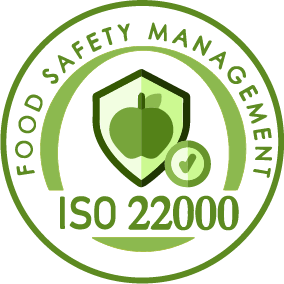Call Us: +201000223355
ISO 22000: 2018
What is ISO 22000:2018?
ISO 22000:2018 specifies the requirements for a food safety management system. It integrates the principles of Hazard Analysis and Critical Control Points (HACCP) and aligns with the high-level structure used in other ISO management system standards, facilitating easier integration with systems like ISO 9001. This standard is applicable to all organizations within the food chain, regardless of size or complexity.


What is ISO 22000:2018?
- ISO 22000:2018 specifies the requirements for a food safety management system. It integrates the principles of Hazard Analysis and Critical Control Points (HACCP) and aligns with the high-level structure used in other ISO management system standards, facilitating easier integration with systems like ISO 9001. This standard is applicable to all organizations within the food chain, regardless of size or complexity.
Key Features of ISO 22000:2018:
High-Level Structure
The standard follows the Annex SL framework, which allows seamless integration with other ISO management system standards, ensuring consistency and efficiency in implementation.
Risk-Based Thinking
ISO 22000:2018 incorporates a risk-based approach at both the operational and organizational levels, emphasizing the identification, assessment, and control of food safety hazards.
Leadership and Commitment
The standard underscores the importance of top management involvement in the FSMS, ensuring that leadership is committed to food safety and allocates the necessary resources.
Asset Management
Identifying and managing information assets is crucial, including determining their value, and ensuring appropriate protection measures are in place.
Planning
Organizations must set food safety objectives and establish plans to achieve these objectives, ensuring they align with the strategic direction of the organization.
Support
Adequate resources, competence, awareness, and communication are required to support the implementation and maintenance of the FSMS.
Operational Control
The standard requires the implementation of operational controls, including prerequisite programs (PRPs), operational prerequisite programs (OPRPs), and HACCP plans, to manage food safety hazards effectively.
Performance Evaluation
Monitoring, measuring, analyzing, and evaluating the FSMS’s performance are essential for ensuring its effectiveness. This includes conducting internal audits and management reviews.
Improvement
Continual improvement is a key component of ISO 22000:2018, requiring organizations to take actions to enhance their FSMS and achieve better food safety outcomes.
Benefits of ISO 22000:2018 Certification:
- Enhanced Food Safety: Prevents food safety hazards and ensures safe food production.
- Regulatory Compliance: Meets national and international food safety regulations
- Market Access: Enables entry into new markets and meets retailer requirements.
- Consumer Confidence: Builds trust and demonstrates commitment to food safety.
- Operational Efficiency: Improves processes, resource management, and reduces costs.
- Risk Management: Identifies and controls food safety risks to protect brand reputation


- Enhanced Food Safety: Prevents food safety hazards and ensures safe food production.
- Regulatory Compliance: Meets national and international food safety regulations
- Market Access: Enables entry into new markets and meets retailer requirements.
- Consumer Confidence: Builds trust and demonstrates commitment to food safety.
- Operational Efficiency: Improves processes, resource management, and reduces costs.
- Risk Management: Identifies and controls food safety risks to protect brand reputation
Conclusion
ISO 22000:2018 is an essential standard for any organization involved in the food industry. It provides a comprehensive framework for managing food safety risks and ensuring the safety and quality of food products. Achieving ISO 22000:2018 certification demonstrates a commitment to food safety, enhances consumer confidence, and provides a competitive edge in the market. By adopting ISO 22000:2018, organizations can ensure the safety and quality of their food products, contributing to the overall health and well-being of consumers.